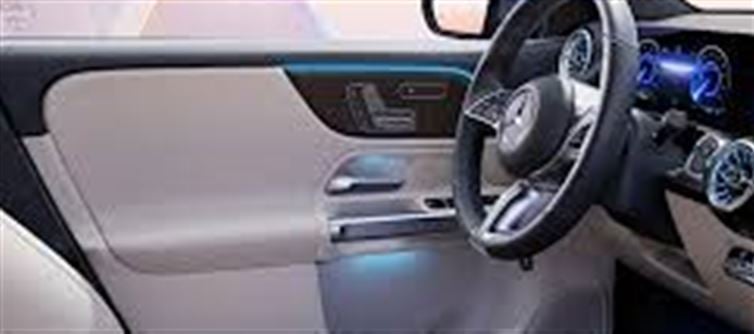
Mercedes-Benz has announced that it will discontinue its all-electric EQB after the 2025 model year. The EQB, which is the electric variant of the popular GLB-Class, has been part of Mercedes' growing EV lineup since its debut. However, as the automaker shifts focus towards new electric models and innovations, the EQB will see its production come to an end.
1. What Is the mercedes-benz EQB?
The Mercedes-Benz EQB is an electric crossover SUV based on the GLB-Class, which has been a popular offering for the brand in the compact luxury SUV segment. The EQB shares much of its design and interior with the GLB but replaces the traditional internal combustion engine with a fully electric powertrain.
Key Features of the EQB:
· Powertrain: The EQB comes with dual-motor all-wheel drive configurations, providing a robust performance and driving experience.
· Interior: It retains the spacious cabin of the GLB, with seating for 7 passengers, which is relatively rare for electric vehicles.
· Range: The EQB offers an estimated 400-450 km range on a full charge, depending on the variant.
2. Reasons Behind Discontinuation
Mercedes-Benz’s decision to end production of the EQB after 2025 is likely a part of its broader strategy to evolve its electric vehicle lineup and prioritize newer, more advanced models. Here are some possible reasons for the discontinuation:
A Shift Toward Newer EVs:
· Mercedes is rapidly expanding its EQ family of electric vehicles, with models like the EQS, EQE, and upcoming EQS SUV.
· The company may be focusing on more innovative electric platforms and next-gen models to remain competitive in the evolving EV market.
Battery technology Advancements:
· As battery technology advances, mercedes-benz could be preparing to use newer, more efficient platforms that provide better range and performance, which the EQB’s current platform might not support.
Market Shifts:
· Consumer preferences are evolving rapidly. While the EQB had a positive reception for its luxury features and spaciousness, demand may be shifting towards more premium EVs like the Mercedes EQS or smaller, sportier EVs like the EQC.
Competition:
· With a growing number of electric crossovers in the market from competitors like Tesla Model Y, BMW iX3, and Audi Q4 e-tron, Mercedes may have determined that it needs to focus resources on vehicles that better match market demands.
3. What’s Next for the EQB Owners and Fans?
The EQB’s discontinuation doesn't mean the end of the road for owners or fans of the model. Mercedes-Benz will continue to provide support, maintenance, and parts availability for existing EQB owners for years to come. Additionally, the used EQB market is likely to see an uptick as the model becomes more limited in availability.
Upcoming Alternatives:
· Mercedes-Benz EQS SUV: This upcoming electric SUV is positioned as the luxury alternative in the EQ lineup, offering more premium features and cutting-edge technology.
· Mercedes EQC: A more compact electric crossover that could appeal to those looking for a smaller, sportier option.
· Future Models: Mercedes is likely to introduce newer EVs built on advanced platforms, targeting more specific segments such as sports sedans, luxury SUVs, and even compact city cars.
4. The Global Shift Toward Electric Mobility
Mercedes-Benz’s decision also highlights the ongoing shift in the global automotive market toward electric mobility. With strict emission regulations and growing consumer interest in sustainability, automakers are focusing heavily on expanding their electric vehicle portfolios.
Mercedes-Benz’s Vision for the Future:
· The brand has committed to making all new vehicles electric by 2030, with plans to fully transition to an all-electric lineup.
· As part of its vision, Mercedes-Benz is doubling down on sustainable technology, with a focus on improving battery efficiency and charging infrastructure.
5. Key Takeaways:
· Mercedes-Benz EQB will be discontinued after the 2025 model year.
· The EQB was an important part of the brand’s electric vehicle lineup, combining luxury with the versatility of an electric SUV.
· The discontinuation likely reflects Mercedes-Benz’s evolving EV strategy, focusing on newer platforms and more advanced electric models.
· EQB owners will continue to get support, and the used EV market may see increased interest as the model becomes limited.
· Mercedes-Benz is focused on expanding its electric lineup with more advanced and premium EVs, including the EQS SUV and EQC.
As electric vehicles continue to evolve, the EQB’s legacy will likely be remembered for its contribution to the luxury electric SUV segment, while mercedes-benz looks forward to newer, more innovative solutions in the rapidly growing electric mobility space.
Disclaimer:
The views and opinions expressed in this article are those of the author and do not necessarily reflect the official policy or position of any agency, organization, employer, or company. All information provided is for general informational purposes only. While every effort has been made to ensure accuracy, we make no representations or warranties of any kind, express or implied, about the completeness, reliability, or suitability of the information contained herein. Readers are advised to verify facts and seek professional advice where necessary. Any reliance placed on such information is strictly at the reader’s own risk..jpg)




 click and follow Indiaherald WhatsApp channel
click and follow Indiaherald WhatsApp channel